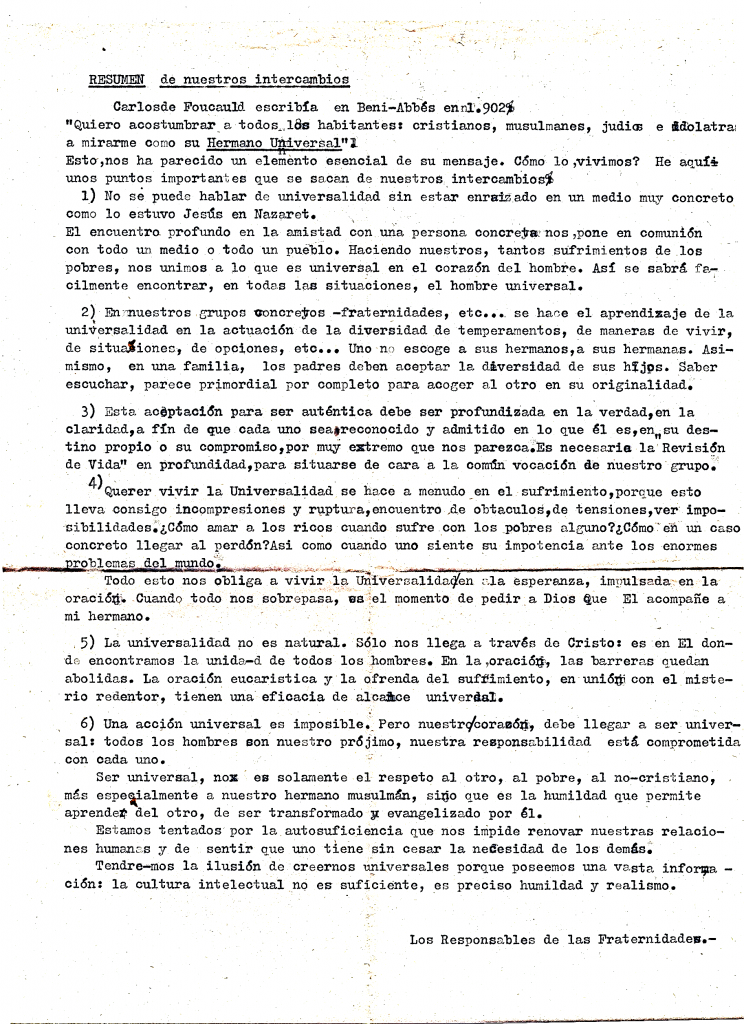A Writing about fraternities probably from 1980,
An original contribution by a brother of the Spanish Fraternity
A SUMMARY of our exchanges
Charles de Foucauld wrote in Beni-Abbès in 1902: “I want to accustom all inhabitants: Christians, Muslims, Jews and pagans to look upon me as their “Universal Brother”.
This seemed to us to be an essential element of his message. How do we live it? Here are some important elements that can be drawn from our exchanges:
1) You cannot speak of universality without being rooted in a very specific milieu as was Jesus of Nazareth.
A deep encounter in friendship with a specific person puts us in communion with a whole milieu or a whole people By making ours the many sufferings of the poor, we join what is universal in the heart of man. Thus, it will be easy to encounter, in all situations, the universal man.
2) In our specific groups – fraternities, etc. we learn of universality in the operation of a diversity of temperaments, of ways of living, of situations, of options, etc. One does not choose one’s brothers, one’s sisters, Similarly, in a family, parents must accept the diversity of their children. Knowing how to listen, seems absolutely essential in order to accept the other in his or her uniqueness.
3) For this acceptance to be authentic, it must be deepened in truthfulness and in clarity, so that each one is recognized and accepted in what he or she is, in their own destiny or commitment, however extreme it may seem to us. An in depth “Review of Life” is necessary in order to orient oneself in the face of the common vocation of our group.
4) Desiring to live Universality is often done in suffering, because it entails misunderstandings and ruptures, the meeting of obstacles and tensions, and seeing impossible situations. How can someone love the rich when he suffers with the poor? How in a specific case do you reach forgiveness? Just as when one feels one’s impotence in the face of the world’s enormous problems.
All this compels us to live Universality with hope, propelled in prayer. When everything is beyond us, it is the time to ask God that He accompany my brother.
5) Universality is not natural. It only comes to us through Christ; it is in Him that we find the unity of all people. In prayer barriers are abolished. The Eucharistic prayer and the offering of suffering, in union with the redemptive mystery, have an efficacy of universal scope.
6) A universal action is impossible. Yet our heart must become universal: all men are our neighbour, our responsibility is committed to each one.
To be universal is not only respect for the other, the poor, the non-Christian, more especially our Muslim brother, but it is the humility that allows us to learn from the other, to be transformed and evangelized by him.
We are tempted by self-sufficiency, which prevents us from renewing our human relationships, and from feeling that one has an incessant need for others.
We will have the illusion of believing ourselves to be universal because we have a vast information: intellectual culture is not enough, humility and realism are necessary.
The Responsibles of the Fraternities
(Translation of Liam O’CUIV. Thanks so much)



